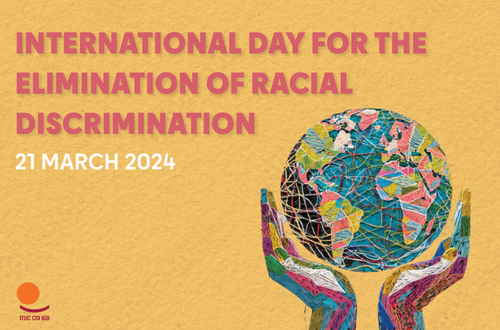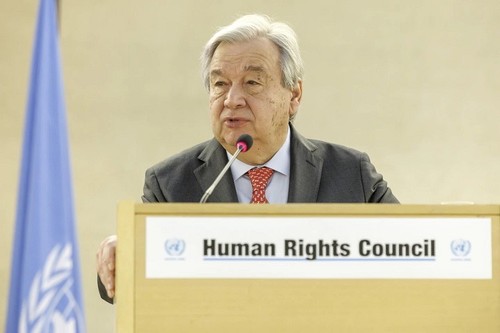 (Source: ITUC CSI IGB) (Source: ITUC CSI IGB) |
In 1979, the UN General Assembly officially designated March 21 as “International Day for the Elimination of Racial Discrimination” to commemorate the murder of 69 South African black protesters during a peaceful march against the apartheid regime in their country which occurred on March 21, 1960.
Justice for Africa
After 45 years of being recognized internationally as one of the world’s top priorities, the global fight against racism has made great strides. Racist laws have been abolished in most countries, and the international community has built important legal frameworks, such as the “International Convention on the Elimination of All Forms of Discrimination” and the “2001 Durban Declaration on the Program of Action” on racial justice and equality for people of African descent.
In 2013, the UN General Assembly initiated the “International Decade for African Descendants”, from 2015 to 2024. To look back at the achievements over the past decade, this year’s “International Day for the Elimination of Racial Discrimination” takes the theme “A Decade of Recognition, Justice, and Development: Implementation of the International Decade for People of African Descent”.
UN data shows that there are about 200 million people of African descent living in the Americas and hundreds of millions more living in other countries, such as the UK, France, Brazil, and Caribbean island countries. They are the subjects of racism, and also suffering from the heavy legacy of past slavery and colonialism.
Last August, the UN Human Rights Council reported that racial discrimination against people of African descent is still rising worldwide.
“The report found that systemic racism continued to affect negatively people of African descent in all aspects of life. Deaths of people of African descent during or after interactions with law enforcement continued, and the report found that little progress had been made to address impunity – despite protracted struggles by families seeking accountability and effective redress,” said Council spokesperson Ravina Shamdasan.
Epsy Campbell Barr, President of the “UN Permanent Forum of People of African Descent”, underlined the need to immediately handle the legacy of the slave trade and colonialism. UN figures show that about 25 to 30 million Africans were trafficked into slavery and forced to move out of Africa between the mid-16thand mid-19th centuries. They were treated horribly, deprived of all political, economic, and social rights, while their descendants endured systematic discrimination for many generations.
The UN considers these to be crimes against humanity and believes that justice must be carried out. Over the past few years, 15 countries of the Caribbean Community of Nations (CARICOM) have launched legal actions to force 10 European countries to pay material and spiritual compensation to the people of African descent.
Seeking racial equality in the technology era
In addition to efforts to regain justice and ensure fair treatment for the African community, the UN and its agencies have also talked more about the emergence of new forms of racism, in the context of radicalization in many societies, and technology platforms which make it more difficult to control the spread of racist ideas.
 UN Secretary General Antonio Guterres speaks at a meeting of the UN Human Rights Council. (Photo: Salvatore Di Nolfi/AP) UN Secretary General Antonio Guterres speaks at a meeting of the UN Human Rights Council. (Photo: Salvatore Di Nolfi/AP) |
UN Secretary General Antonio Guterres warned of a very dangerous trend that many far-right and populist politicians are using xenophobic and racist rhetoric for political purposes.
“Xenophobia, prejudice and hate speech are rising. Political leaders scapegoat migrants, with devastating impact. White supremacist influencers profit from racism on social media platforms,” he said.
Guterres said that after a period of significant improvement in raising awareness on the importance of anti-racism, many countries are now witnessing a reverse trend, where their policies and practices again have discriminatory elements. He said the risks of misinformation and disinformation on racial topics are increasing, especially when artificial intelligence (AI) technology is applied, resulting in the uncontrolled circulation of racist ideas in the digital space.
In his message on this year’s “International Day for the Elimination of Racial Discrimination”, the UN Secretary General for the first time called on technology corporations to jointly act to control AI to eliminate all prejudices which are contributing to racism worldwide.